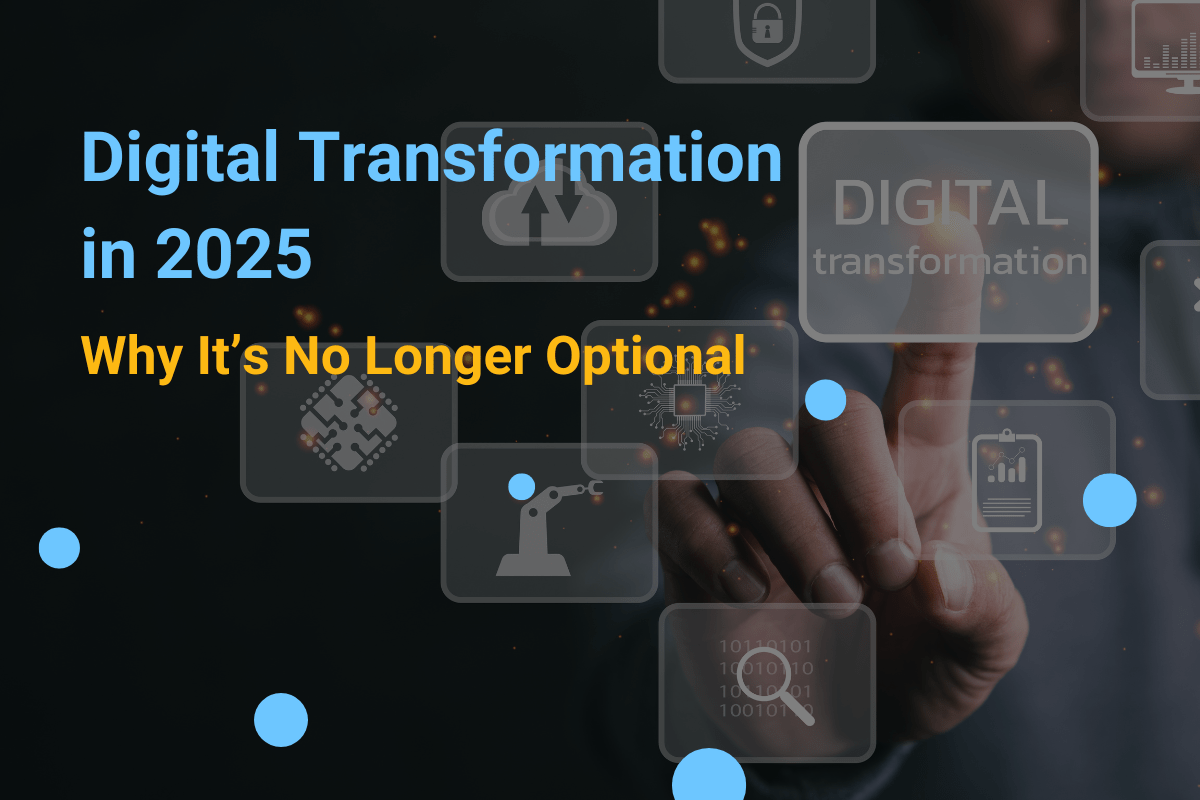As we enter 2025, the business landscape is evolving faster than ever. Companies across industries are witnessing a dramatic shift in how they operate, engage with customers, and compete in the global marketplace. At the heart of this transformation is digital technology—a driving force that has gone from a competitive advantage to a fundamental necessity for survival. Digital transformation is no longer optional; it is the foundation for business success and resilience in the modern era.
What is Digital Transformation?
Digital transformation refers to the integration of digital technologies into all areas of a business, fundamentally changing how it operates and delivers value to customers. This transformation goes beyond adopting new tools—it requires a cultural shift, a willingness to experiment, and a commitment to challenging traditional business models.
From automating routine processes to leveraging data analytics for real-time insights, digital transformation reshapes how businesses function, innovate, and grow. But why is this transformation essential in 2025?
The Accelerating Pace of Change
One of the primary reasons digital transformation is no longer optional is the accelerating pace of technological advancement. Innovations like artificial intelligence (AI), the Internet of Things (IoT), and edge computing have rapidly evolved, and businesses must keep up to remain competitive.
The global shift to remote and hybrid work models has further underscored the need for digital tools and infrastructure that enable seamless collaboration and connectivity. Businesses that fail to embrace these technologies risk falling behind as customers, partners, and employees expect more efficient and digitally enabled interactions.
Changing Customer Expectations
Today’s customers demand personalized, efficient, and seamless experiences. They expect businesses to anticipate their needs, offer real-time solutions, and provide consistent interactions across all channels—whether it’s a mobile app, website, or in-person service.
Digital transformation empowers businesses to meet these expectations by leveraging data-driven insights, automating customer service processes, and delivering tailored products and services. Without these capabilities, organizations risk losing customers to competitors who can provide a superior digital experience.
Enhanced Operational Efficiency
Digital tools enable businesses to streamline operations, reduce manual processes, and improve overall efficiency. From cloud-based collaboration platforms to advanced automation systems, these technologies allow teams to work faster and smarter.
In 2025, operational efficiency is critical for maintaining a competitive edge. Companies that rely on outdated, manual processes face increased costs, slower response times, and diminished productivity—issues that can hinder growth and scalability.
The Importance of Agility and Resilience
The past few years have taught businesses a crucial lesson: the ability to adapt quickly to change is vital. Whether it’s navigating supply chain disruptions, responding to market shifts, or weathering economic uncertainty, digital transformation fosters agility and resilience.
By adopting cloud technologies, AI-driven decision-making, and flexible IT infrastructures, businesses can respond rapidly to challenges and seize new opportunities. This adaptability is no longer a luxury—it is a survival mechanism in today’s unpredictable environment.
Strengthened Cybersecurity
As digital transformation accelerates, so do cybersecurity threats. The more connected and data-driven businesses become, the more they expose themselves to potential risks. In 2025, cybersecurity must be a core component of any digital transformation strategy.
By implementing robust security measures, such as endpoint protection, zero-trust architectures, and continuous monitoring, organizations can safeguard sensitive data and protect their systems from increasingly sophisticated cyberattacks. Digital transformation not only enhances security but also ensures compliance with evolving data privacy regulations.
Attracting and Retaining Top Talent
Today’s workforce values flexibility, innovation, and the ability to work with cutting-edge technologies. Employees are drawn to organizations that prioritize digital transformation because it demonstrates a commitment to staying relevant and competitive.
Digital tools also improve the employee experience by enabling remote work, simplifying workflows, and fostering collaboration. In a competitive labor market, businesses that fail to modernize their operations risk losing top talent to digitally savvy competitors.
Staying Ahead of Competitors
In 2025, digital transformation is no longer a differentiator—it’s the baseline for doing business. Companies that hesitate to embrace this change will quickly find themselves outpaced by more agile and innovative competitors. Digital transformation enables businesses to innovate faster, deliver superior products and services, and capture new market opportunities.
Without a robust digital strategy, organizations risk becoming obsolete as their competitors leverage technology to disrupt industries and redefine customer expectations.
Conclusion
Digital transformation in 2025 is not just a trend—it’s a necessity for any business that wants to stay relevant, competitive, and resilient. The rapid pace of technological advancements, evolving customer expectations, and the increasing need for agility and security make it clear that businesses can no longer afford to delay their transformation journeys.
The time to act is now. Companies that embrace digital transformation with a clear strategy and a commitment to innovation will not only survive but thrive in the ever-changing business landscape of 2025 and beyond.
Ready for a Better IT Experience?

